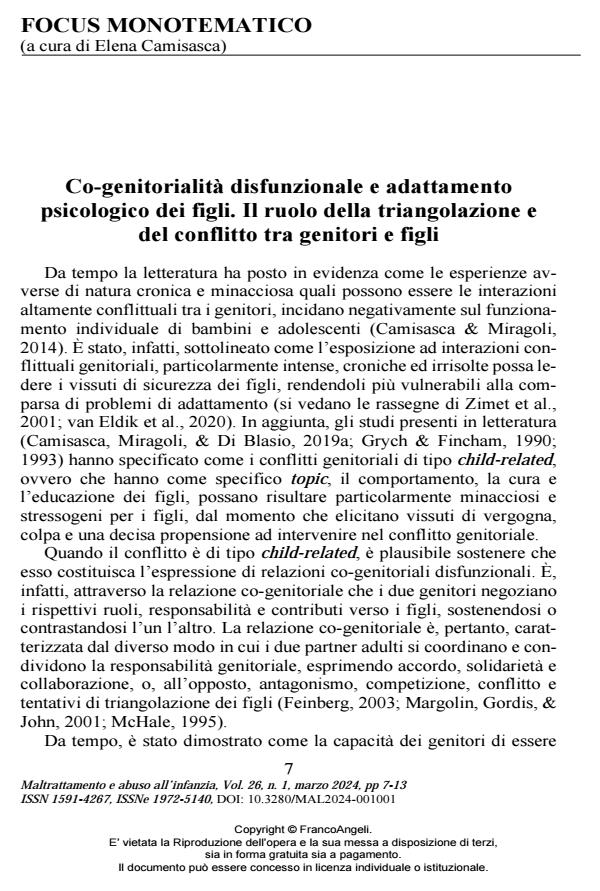Co-genitorialità disfunzionale e adattamento psicologico dei figli. Il ruolo della triangolazione e del conflitto tra genitori e figli
Titolo Rivista MALTRATTAMENTO E ABUSO ALL’INFANZIA
Autori/Curatori Elena Camisasca
Anno di pubblicazione 2024 Fascicolo 2024/1
Lingua Italiano Numero pagine 7 P. 7-13 Dimensione file 152 KB
DOI 10.3280/MAL2024-001001
Il DOI è il codice a barre della proprietà intellettuale: per saperne di più
clicca qui
Qui sotto puoi vedere in anteprima la prima pagina di questo articolo.
Se questo articolo ti interessa, lo puoi acquistare (e scaricare in formato pdf) seguendo le facili indicazioni per acquistare il download credit. Acquista Download Credits per scaricare questo Articolo in formato PDF

FrancoAngeli è membro della Publishers International Linking Association, Inc (PILA), associazione indipendente e non profit per facilitare (attraverso i servizi tecnologici implementati da CrossRef.org) l’accesso degli studiosi ai contenuti digitali nelle pubblicazioni professionali e scientifiche.
Elena Camisasca, Co-genitorialità disfunzionale e adattamento psicologico dei figli. Il ruolo della triangolazione e del conflitto tra genitori e figli in "MALTRATTAMENTO E ABUSO ALL’INFANZIA" 1/2024, pp 7-13, DOI: 10.3280/MAL2024-001001